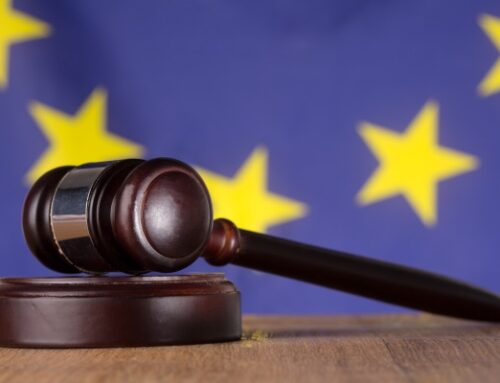Detlef Schmuck: “Deglobalization also means reducing dependence on US IT companies.
Hamburg, May 19, 2020 – From home offices to video conferencing, many companies are currently accelerating their operational digitalization. However, it is best not to rely on US providers in order not to be subject to the rules of US corporations or even unintentionally fall into the sights of US authorities, warns Detlef Schmuck, Managing Director of Hamburg-based TeamDrive GmbH. The company offers a high-security data service which, due to its security classification, is suitable for professional secrecy holders such as lawyers and tax advisors, over and above operational concerns. These professional groups are obliged by law to maintain confidentiality. “Companies should not be satisfied with less,” says Detlef Schmuck, referring to the risk situation when using US providers.
The TeamDrive boss names three good reasons why German businesses should not entrust their data to US providers:
The US Patriot Act has allowed US authorities such as the CIA, the NSA or the FBI to access the servers of US companies without a court order since 2001. This expressly includes foreign subsidiaries, for example in Germany, even if German or European laws, such as those on data protection, explicitly prohibit this. Parts of the law expired on June 1, 2015 and were replaced by the provisions of the USA Freedom Act on June 2, 2015.
The USA Freedom Act forces U.S. companies to retain all customer data in order to hand it over to U.S. authorities upon request if they claim a potential threat.
Since 2018, the Cloud Act has obligated U.S. Internet companies and IT service providers to grant U.S. authorities access to stored customer data even if the data is stored outside the United States, for example in Germany. The authority can prohibit the service provider from informing its customers about such access.
“Anyone who stores personal data or company secrets with a US provider always runs the risk of becoming liable to prosecution and damages under the basic data protection ordinance,” says Detlef Schmuck.
The TeamDrive boss also points to the danger that the European Court of Justice (ECJ) will declare the currently still valid “Privacy Shield” between the EU and the USA legally invalid this year or next year. The European Parliament has already condemned the “Privacy Shield” as incompatible with the EU’s fundamental right to privacy. If the ECJ overturns the agreement, the use of US services for personal data would per se constitute a breach of data protection for European companies.
“US digital companies have already started flexing their muscles in the current pandemic,” says Detlef Schmuck. He cites as an example the joint specifications of Apple and Google for data storage for a contact tracing system for all states, including the German government. “The understanding of the US government and the US corporations ultimately boils down to the fact that they dictate the global rules for information processing and data storage,” says the TeamDrive boss, and concludes: “It is therefore high time to break free from this dependency as quickly and as far as possible.
Detlef Schmuck appeals: “Deglobalisation is not only the order of the day in logistics, but also in IT as the heart of practically every company.





